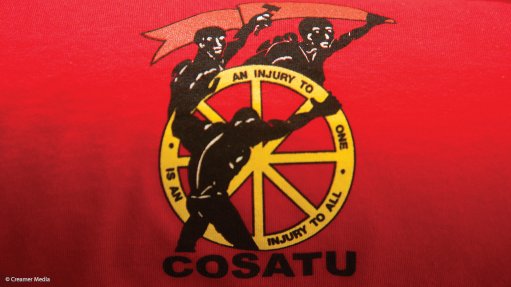
Photo by: Duane Daws
The minimum wage of R20 per hour agreed by parties at the National Economic Development and Labour Council (Nedlac) will not make a dent in the lives of the poor, the Congress of South African Trade Unions (Cosatu) said on Tuesday.
President Jacob Zuma and Deputy President Cyril Ramaphosa will take part in a signing ceremony on Tuesday during a lunch with South Africa’s top chief executives ahead of Zuma’s State of the Nation Address on Thursday. The agreement will take effect from May 2018.
It follows Ramaphosa’s proposal of a R3 500 national minimum wage in December. He has been heading up the negotiations with Nedlac.
Now the agreement has been amended to focus on the hourly rate. “The stipulation for R20 per hour instead of a blanket R3 500 monthly minimum wage may result in a limitation on the number of hours employees may work per week,” the Business Day, which has a copy of the Nedlac document, reported on Tuesday.
However, Cosatu spokesperson Sizwe Pamla criticised the agreement on Tuesday, saying the African National Congress has failed to implement its policy to radically transform the economy. "It is ridiculous," he said.
“We made it very clear that the minimum wage is not just about having a wage,” he told Fin24. “It’s about having one that makes a difference to South African lives.”
About 47% of South Africans earn below R3 500, while 51% live on less than R1 600 per month, said Ramaphosa in December 2016 when he announced the proposal.
“If we have a minimum wage it will be a radical shift to address wage inequality in the country. It’s estimated that between 6-million and 7-million people in South Africa are earning less than R3 500 and in many ways a minimum wage will lift as many as those out of poverty.”
However, Pamla said the wage won’t make an impact for the 47% of workers. “The minimum wage is supposed to help and lift up those people at the bottom end of the salary scale and allow them to afford basic care,” he said. “R20 is spectacular failure to transform the labour market.”
He called for a basic minimum wage that starts at R4 500 per month.
Pamla said government is “bending over backwards and allowing business to have their way”.
“This is a snub for the federation,” he said. “We are going to see the gap of haves and have nots widen. We will see more exploitation. Employers will see labour is isolated.”
Business Day revealed that the parties also agreed to establish the National Minimum Wage Commission to review the minimum wage every year.
“Among the first assessments of the effect of the introduction of the minimum wage will be whether it had affected employment. Unemployment levels in the country reached 27% in the last quarter of 2016,” the paper explained.
“The agreement is also accompanied by a ‘code of good practice for collective bargaining, industrial action and picketing’, as well as an ‘accord on collective bargaining and industrial action’, which, it is hoped, will mitigate lengthy and violent strikes. Labour and government declined to comment on the agreement.”